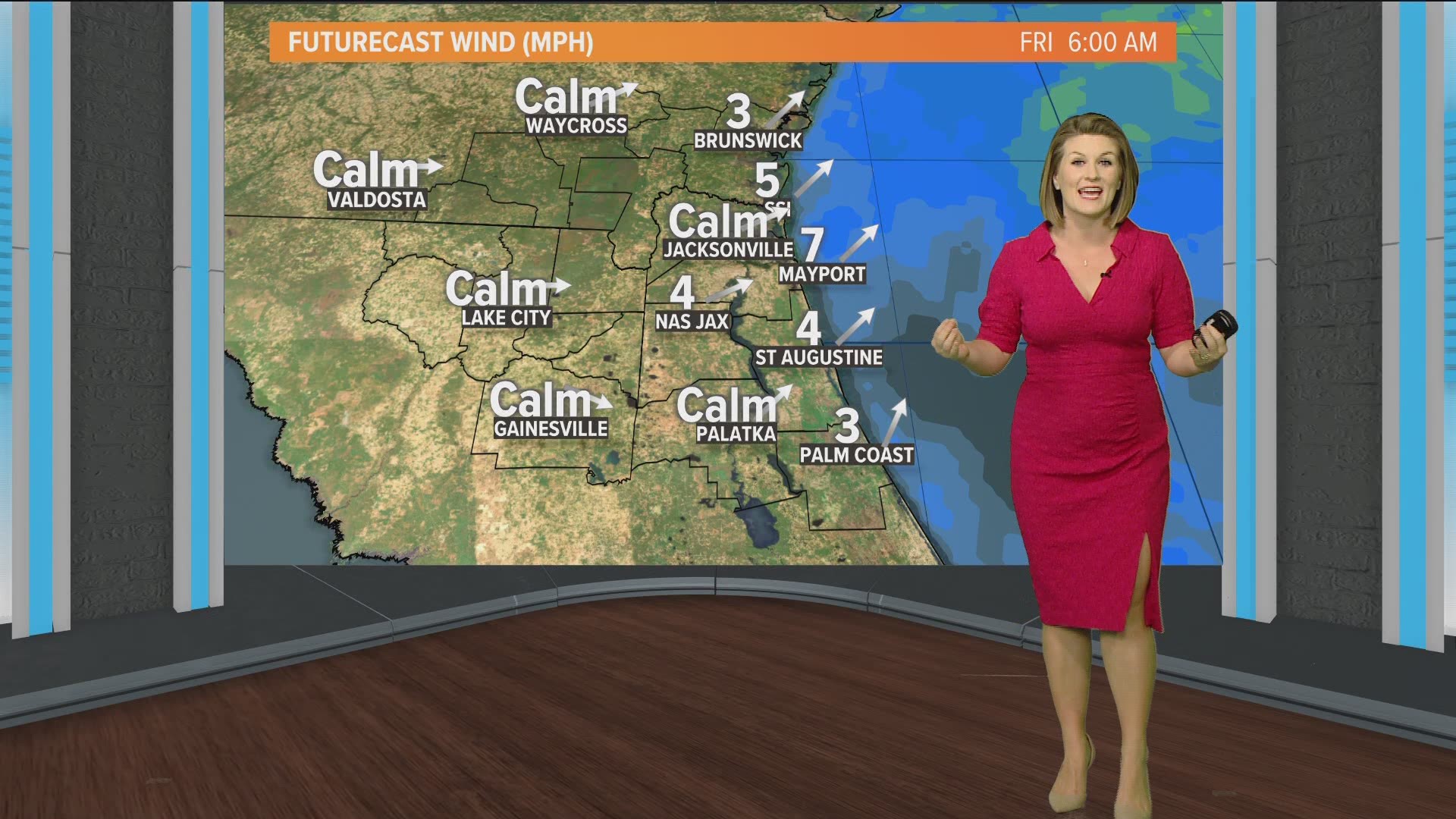JACKSONVILLE, Fla. — You'll hear your First Coast News Weather Team talk about the sea breeze during every single weathercast in the summer months. It's always helping determine where and when we see storms develop across the Sunshine State.
So - what are sea breezes and why do they occur?
By definition, a sea breeze is the breeze blowing toward the land from the sea, especially during the day owing to the relative warmth of the land.
Let's break this down further.
Sea breezes happen during hot, summer days because of the unequal heating rates of land and water. Land heats up a lot faster compared to water. It takes a pattern with days or weeks or even months of warmer weather to consistently heat up the water. On the other hand, we see a wide range of temperatures over land every single day.
Therefore, during the day the air above the land is warmer than the air above the ocean. Warmer air is lighter than cooler air, so warm air rises. Hence, the warmer air rises over the land. The cooler air over the ocean flows over the land to replace the warmer, rising air.
This is the sea breeze!
The opposite happens at night where the wind returns to flow back from the land toward the ocean. The warmer air over the ocean is more buoyant and rises. The denser, cooler air over the land flows offshore to replenish the warmer air. This is called a land breeze.
This small-scale fluctuating breeze happens almost every day in Florida, but it is most prevalent during the summer months.
You can think of the sea breeze boundary as a very small cold front. It slides inland from both coasts and, ahead of these mini fronts, storms develop while it slowly tracks over land.
You can typically count on sea breeze downpours to develop between noon and 2 p.m. almost every summer afternoon. The Atlantic and Gulf coast sea breezes often merge, which is when we expect heavier, longer lasting storms. These big boomers can pack a punch with hundreds of lightning strikes and torrential rain. Picture it as two "small cold fronts" colliding. It can take hours for the weather to calm down as they "battle" it out.

